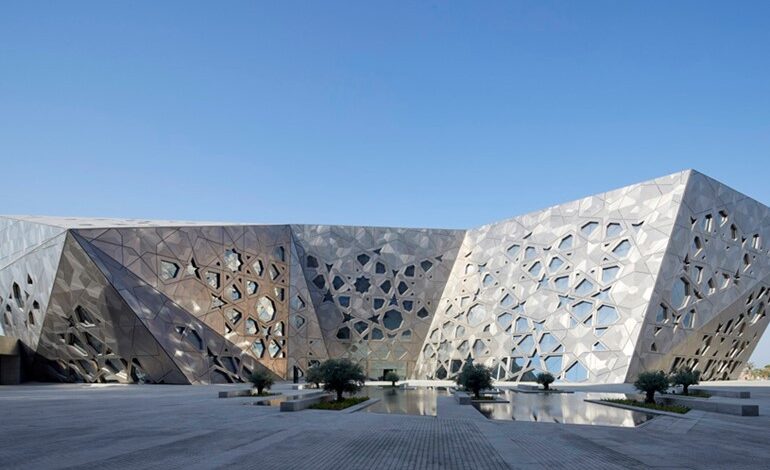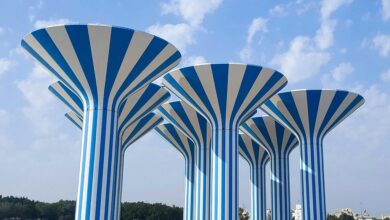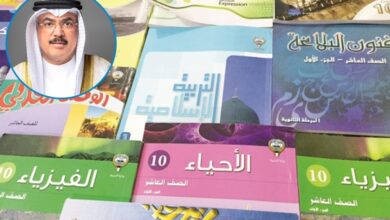Kuwait celebrates as ‘Capital of Culture and Arab Media 2025’ with panel discussion
Kuwait’s cultural significance, both locally and regionally, is evident in the success of its institutions in revitalizing creative initiatives and preserving the nation’s heritage.

• Kuwait is characterized by a multitude of cultural institutions which play a crucial role in enlightening the new generation and encouraging a love for culture.
• Kuwait’s association with culture dates back to the early establishment of the state. After some cultural developments in the 1950s, the most significant cultural shift occurred with the launch of the magazine ‘Al-Arabi’ in 1958.
• Kuwait has been a cultural pioneer and was chosen as the capital of culture and media. It is a beacon that has shone over the decades, enriching Gulf culture in particular and Arab culture in general.
In celebration of Kuwait being named the Capital of Culture and Arab Media 2025, the Ministry of Information and the National Council for Culture, Arts, and Literature will host a panel discussion on Monday. The event aims to highlight Kuwait’s prominent cultural role that led to this nomination, as reported by Al Anba newspaper.
A multitude of cultural institutions
Kuwait is characterized by a multitude of cultural institutions, including the Jaber Cultural Centre, the Abdullah Al-Salem Centre, Dar Suad Al-Sabah, the Writers’ Association, the National Council for Culture, Arts, and Letters, and the Kuwait National Library. These establishments play a crucial role in enlightening the new generation and encouraging a love for culture.
Cultural significance
Kuwait’s cultural significance, both locally and regionally, is evident in the success of its cultural institutions in revitalizing creative initiatives and preserving the nation’s cultural heritage. They highlight the civilizational and cultural value of Kuwait, which has become a beacon of Arab culture. This legacy led to Kuwait being named the Capital of Arab Culture in 2001 and re-selected as the Capital of Culture and Information for 2025.
Kuwait’s association with culture dates back to the early establishment of the state
Kuwait’s association with culture is not recent; it dates back to the early establishment of the state. After some cultural developments in the 1950s, the most significant cultural shift occurred with the launch of the magazine ‘Al-Arabi’ in 1958. This marked the beginning of a flourishing cultural scene, leading to the establishment of the Writers’ Association and subsequently the National Council for Culture, Arts, and Literature.
Recently, cultural and heritage centers that are akin to pearls have opened in Kuwait, such as the Kuwait National Library in 2011, which houses approximately 335,000 books and volumes.
On November 2, 2011, the American center affiliated with the Islamic Antiquities House was inaugurated. In 2013, the Beit Al-Othman Museum opened in the Hawally area, and on March 2, 2015, Martyr Park was established as a cultural, educational, and entertainment center. Subsequently, the Sabah Al-Ahmad Heritage Village was launched as a tourist and heritage landmark.
In 2016, the Sheikh Jaber Al-Ahmad Cultural Centre opened, recognized as one of the most important cultural centers in the Arab region. On February 5, 2018, the Sheikh Abdullah Al-Salem Cultural Centre was inaugurated, regarded as one of the greatest cultural development landmarks.
Cultivating cultural and intellectual growth
Cultural institutions play a vital role in enlightening the new generation and promoting the importance of culture in building societies. It is essential to direct young people towards cultivating their cultural and intellectual growth, especially since culture is the most significant and profound aspect of Arab youth unity.
In this context, writer Ibrahim Al-Khaldi told ‘Al-Anbaanewspaper that Kuwait’s selection as the Capital of Culture and Arab Media 2025 reflects its commitment to the cultural and media landscapes. He noted that this occasion serves as a fulcrum for establishing cultural institutions.
Al-Khaldi explained that 25 years ago, when Kuwait was chosen as the Capital of Arab Culture, the entire cultural scene benefitted through the establishment of various cultural venues and the launch of numerous initiatives. He emphasized that the state that capitalizes on such occasions to enhance its cultural climate is the one truly capable of advancing its cultural status.
Al-Khaldi explained that Kuwait was considered a desert region until recently, closely linked to both the desert and the sea. As one traveler mentioned, Kuwait is the neighbor of the sea and the desert. However, the country has made significant cultural achievements, especially following the period of economic recovery that began in the 1940s.
Kuwait has produced many cultural milestones in the fields of reading, writing, and printing, including Al-Arabi magazine, the World of Knowledge series, the World of Thought series, and a series focused on reviving heritage, as well as publishing The Crown of the Bride.
Al-Khaldi emphasized that culture has many facets, noting that Kuwait was a pioneer in theater in the Gulf and the Arab world.
Al-Khaldi remarked that directing young people towards the cultural scene is currently a very challenging task. He stated, “The temptations faced by the generation of the nineties were far fewer than those we encounter today. The options available in the eighties were limited. Now, convincing young people to engage with cultural matters is undoubtedly a significant challenge. This must be addressed by institutions, civil initiatives, and personal efforts aimed at rekindling interest in reading, encouraging public attendance at cultural events, elevating the importance of books, and diversifying cultural activities. I believe the key lies in giving a modern twist to cultural activities.”
For his part, visual artist Sami Mohammed stated that Kuwaiti cultural activity began in the 1950s, focusing on fine arts and free painting, which served as the true nucleus for establishing the Faculty of Fine Arts. This initiative was supported at the time by Sheikh Abdullah Al-Jaber and Abdulaziz Hussein, may God have mercy on them. Kuwait’s interest in all fields of culture did not arise suddenly; it has been developing for decades. Therefore, it is no surprise that Kuwait was chosen as the capital of culture.
For her part, Taghreed Al-Daoud, a member of the Board of Directors of the Writers’ Association, emphasized that one of the most important factors in Kuwait’s appeal to Arab intellectuals is the integration experienced by its people, as well as their love for others and active role in spreading Arab culture. It is, therefore, fitting that Kuwait has been chosen as the capital of culture and media.
In addition, publisher and researcher Fahd Al-Hindalstated that the leadership achieved by Kuwait through Al-Arabi magazine was not the first glance at the cultural scene. Overall, Kuwait has been a cultural pioneer and was chosen as the capital of culture and media. It is a beacon that has shone over the decades, enriching Gulf culture in particular and Arab culture in general.











